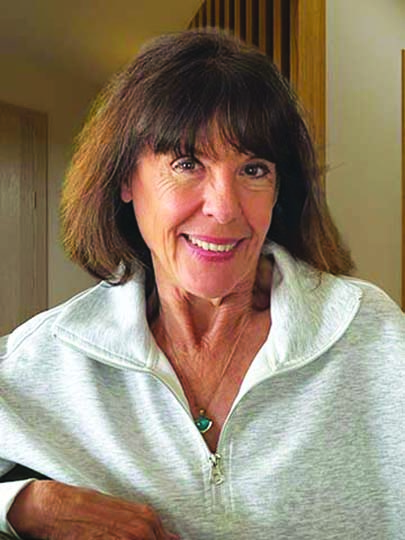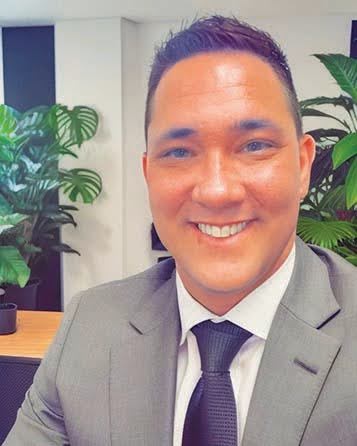Looking back, the signs were there, she realizes now. The extreme bursts of energy and creativity, the sudden low moods, the sleep problems, the sensitivity to sounds and light, even the infidelities. But at the time, all that seemed clear to Sheila Hamilton was that her brilliant and passionate husband, David, the father of her child, was becoming someone she no longer recognized.
It was a transformation that would not be explained until almost a decade into their marriage, when he was diagnosed with bipolar disorder.
“I just couldn’t piece it together. David was incredibly intelligent, very high functioning. And his doctors said they’d never seen a case in which a person with such a severe mental disorder was able to compensate without hospitalization or any medication,” Sheila said. “I think that he probably knew that something was wrong, but he was raised in a family that believed that mental illness was a moral weakness, a failing. And so he was very ashamed to ask for help and did everything he could to hide, to deny, to compartmentalize.”
In December 2006, six weeks after his bipolar disorder diagnosis and the day after his release from an enforced hospitalization, David took his life, leaving behind an emotionally devastated wife and 9-year-old daughter. That devastation increased when Sheila discovered hundreds of thousands in debt David had hidden when his construction business became too overwhelming for him to handle.
As a type of therapy, Sheila began to write about what had happened. “It was an attempt to try to figure out my own trauma,” she explained, “and hold myself accountable for the signs and symptoms I had missed and why I had been so wholly unprepared to deal with someone with a mental illness.”
Somewhere along the way, she shifted from memoir to include an investigation of the nation’s mental health crisis, calling upon her experience as a journalist to do so; she’s a writer, a broadcaster, a well-known Portland radio personality and news director, and a five-time Emmy winner.
The result of that effort is All the Things We Never Knew: Chasing the Chaos of Mental Illness, a book that combines a heart-wrenching narrative of upended lives with practical information for others who find themselves struggling to understand and deal with a mental illness, whether their own or that of a loved one.
“What I found was the outcome that our family had experienced wasn’t at all uncommon, and that’s why I ended up publishing the book,” she said. “I felt very much like other people could learn from my experience since it turned out to be quite a universal one.”
Inside the Trauma
Each chapter in the book begins with personal narrative and concludes with a concise exploration of mental health issues related to her husband’s story. She examines hypersexuality, for example, which many of those with bipolar disorder report experiencing when in a manic phase and which she believes played a part in David’s relationships with other women during their marriage. There are also discussions of involuntary hospitalization, suicide, denial, children and grief, and the troubling consequences of privacy laws, which can keep even the spouse of a patient from being informed of a diagnosis.
Most troubling, she said, is the heavy dependence on and the shortcomings of psychiatric drugs, especially those known as selective serotonin reuptake inhibitors (SSRIs). These are often prescribed for illnesses such as depression and bipolar disorder despite the fact that numerous studies indicate such drugs can sometimes make bipolar disorder worse by sparking rapid cycling of moods, she said.
It’s what happened to her husband, Sheila said. He finally reached out for help from a friend who was a physician and was prescribed SSRIs. “He didn’t sleep for almost five and a half weeks. He lost about 35 pounds in a month. He was pacing all night long and having olfactory hallucinations,” she said. “And so during that time he attempted suicide twice and was finally hospitalized.”
Instead of helping, the hospitalization “actually traumatized him further because all that happened was that doctors would see him for a med check, prescribe more pharmaceuticals that weren’t actually working for him and told him that his life as he’d known it was over and he’d have this disability for the rest of his life. So the day after he was released from the hospital, he died by suicide.”
What she wishes David had known, and what she learned in the aftermath of his death, is that much can be done to address and recover from mental illness, especially with early treatment. And, as she explains in the book, each passing day brings greater understanding of mental health issues in both the medical community and society, and better and more holistic treatment strategies.
Most encouraging to her is the sense that the stigma that keeps so many from admitting to their struggles and reaching out for help is slowly lessening — a state of affairs she credits in large part to the young. “If you go in the Twittersphere, there is a lot of conversation about ‘I have an anxiety disorder; this is how I cope.’ ‘I have PTSD.’ ‘I have bipolar.’ There’s not that kind of damnation around it. So I do think that stigma is going to die away with older generations. I believe 10 years from now we’ll be able to talk about mental illness like we talk about breast cancer or diabetes or any other type of illness.”
One of those enlightened young people is Sophie, her daughter with David, who is now a college student studying psychology and business at Stanford. “She’s really interested in how she can use the experience of her life, the most defining experience really, to help other people.”

































